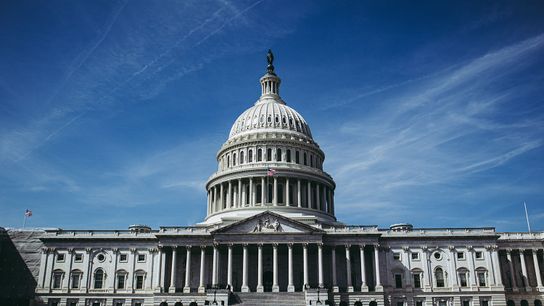Despite the fact that the NCAA can pass new name, image, likeness bylaws at any time, it is the official position of NCAA leadership that the organization needs Congressional help. And, boy, do they now have it.
US Senators Chris Murphy (D-CT) and Bernie Sanders (I-VT) on Thursday introduced the College Athletes Right to Organize bill which, if passed, would classify college athletes as employees of the university they compete for. The bill's authors make this assertion arguing that athletes are paid in scholarship, room and board and other benefits on the condition that they compete for the schools that provide said scholarship, thus making them employees.
“Big time college sports haven’t been ‘amateur’ for a long time, and the NCAA has long denied its players economic and bargaining rights while treating them like commodities," Murphy said in a statement. “That’s why I’m introducing the College Athlete Right to Organize Act, which finally recognizes college athletes as employees and allows athletes to collectively bargain with their colleges and across conferences. Having the right to do so will help athletes get the pay and protections they deserve and forces the NCAA to treat them as equals rather than second-class citizens. It’s a civil rights issue, and a matter of basic fairness.”
Murphy has been at the forefront of the NIL issue, using the power of his office to spotlight the issue way back in the prehistoric time of 2019. The NCAA announced plans to form its first NIL committee six weeks after Murphy went public with his platform.
Sanders, meanwhile, launched two presidential campaigns based around workers' rights.
A companion bill has also been introduced by Democrats in the House of Representatives.
It's been the NCAA's official stance in numerous court cases that college athletes are not employees, and the organization fired back Thursday afternoon.
“College athletes are students and not employees of their college or university. This bill would directly undercut the purpose of college: earning a degree. The NCAA and its member schools support student-athletes through scholarships – many of which cover their full cost of education debt free – and numerous other benefits. NCAA members also are committed to modernizing name, image and likeness rules so student-athletes can benefit from those opportunities but not become employees of their school. We will continue to work with members of Congress to focus on issues that align with our priorities. But turning student-athletes into union employees is not the answer.”
Still, it doesn't take a political expert to know arguing with the very people whose help you need isn't exactly a great negotiating tactic.
That's not to say Murphy and Sanders's efforts are guaranteed to succeed. Far from it. For one thing, Northwestern's football team attempted to unionize in 2015 but that effort was rejected by the National Labor Relations Board, a damning blow to the argument that college athletes are employees. Maybe the legal view changes in a world where the College Athletes Right to Organize bill is law, maybe it doesn't.
More immediately, NIL bills become law in numerous states as soon as July 1 -- a month from Tuesday.
Some Congressional leaders believe they have a chance of completing the Hail Mary of passing a federal NIL bill by that July 1 date. Passing such a bill wouldn't stop Congress from passing the CARO bill on top of an NIL bill, but Congress could just as easily consider the issue resolved and move on to other topics.
No one on either side of the table wanted Congress solving the issue of whether college athletes can profit off their own image, but years of inaction led us to this point. The NCAA wanted -- needed, they said -- lawmakers' help, and now they're reminding all of us to be careful what you wish for because you just might get it.
